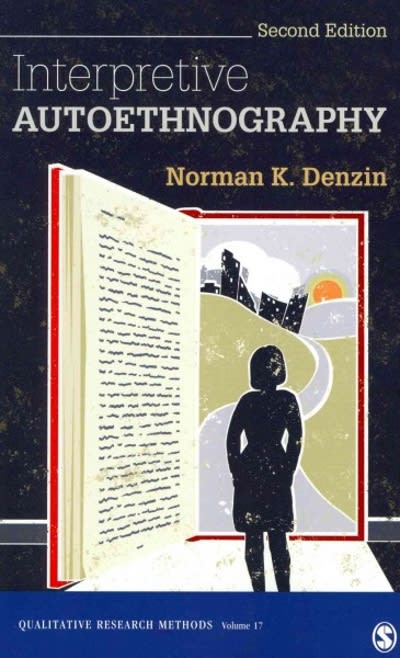Question
As a sous-chef at an upscale restaurant, you loved your work. When your boss announced an opening for another chef, you were happy to recommend
As a sous-chef at an upscale restaurant, you loved your work. When your boss announced an opening for another chef, you were happy to recommend your friend Jasmine, a Native American chef with a flair for fusion cuisine. Because Jasmine had several years of experience as an executive chef, her previous employer provided her with a glowing reference. Several months after Jasmine was hired, you left the restaurant and accepted a chef position at another restaurant.
About a year later, you and Jasmine meet to catch up. During your conversation, Jasmine shares that she loves her position at your former restaurant; however, she is concerned that she is a victim of pay inequity. Jasmine explains that even though she received a pay increase on her one-year anniversary, her predecessor, James, earned 30 percent more after working at the same restaurant for the same amount of time as Jasmine.
In truth, Chef James had less culinary experience than Jasmine. Even worse, James left the position because the restaurant received a less than five-star review that complained about his lower quality dishes. By contrast, Jasmine has consistently received outstanding reviews on her dishes during her entire tenure at the restaurant, and has even been featured on a national television program that showcases America's best restaurants. Since that program aired, business has increased, with customers and critics alike raving about Jasmine's dishes. Concerned about the inequity of your friend's situation, you do your best to support Jasmine.
- Applying Piaget's concept of perspective-taking in ways that would support Jasmine, address the following in your response:
- Why is perspective-taking so critical to your conversation with Jasmine?
- How might you seeing Jasmine's situation from her point of view inspire her to advocate for herself?
- Applying Goleman's concept of empathy in ways that would support Jasmine, address the following in your response:
- Why is empathy so critical to your conversation with Jasmine?
- In Jasmine's case, what do you believe is the main difference between perspective-taking and empathy?
- Applying Gilligan's views on morality in ways that would support Jasmine, address the following in your response:
- Why is moral reasoning so critical to your conversation with Jasmine?
- According to Gilligan, which type of morality best aligns with Jasmine's situation: care-based morality, justice-based morality, or both? Explain your response.
- As you conclude your conversation with Jasmine, integrate the perspectives of Piaget, Goleman, and Gilligan by answering the following questions
- According to Piaget, what is one factor that could inhibit your ability to take Jasmine's perspective? How might Goleman's concept of empathy mitigate this factor?
- How does Goleman's concept of empathy relate to Piaget's concept of perspective-taking in your conversation with Jasmine?
- How do Gilligan's views on morality relate to Goleman's concept of empathy in your conversation with Jasmine?
Sources should be cited according to APA style
Step by Step Solution
There are 3 Steps involved in it
Step: 1

Get Instant Access to Expert-Tailored Solutions
See step-by-step solutions with expert insights and AI powered tools for academic success
Step: 2

Step: 3

Ace Your Homework with AI
Get the answers you need in no time with our AI-driven, step-by-step assistance
Get Started


